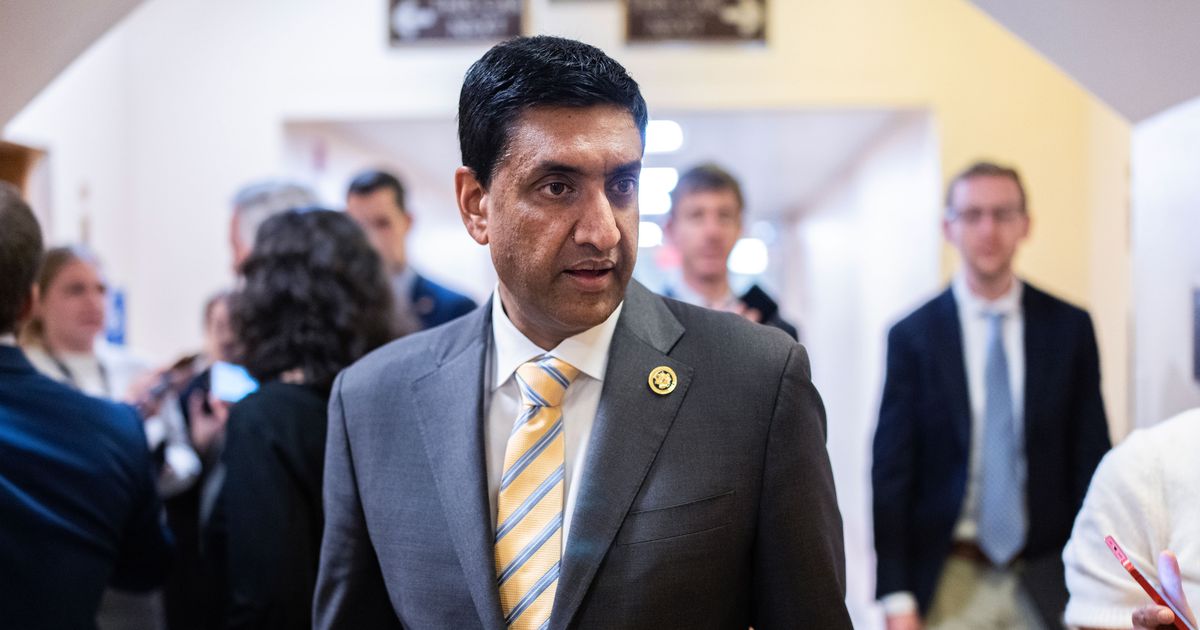The End Of Bipartisanship? When Democratic Hopes For Collaboration With Trump Faltered

Discover more detailed and exciting information on our website. Click the link below to start your adventure: Visit Best Website. Don't miss out!
Table of Contents
The End of Bipartisanship? When Democratic Hopes for Collaboration with Trump Faltered
The early days of the Trump presidency saw glimmers of hope for bipartisan cooperation. Some Democrats, clinging to the possibility of pragmatic compromise, envisioned a working relationship with the new administration. However, these hopes quickly crumbled, leaving behind a legacy of partisan gridlock and shattered expectations. This article explores the key moments that marked the demise of this fragile bipartisan optimism.
The Initial Cautious Optimism:
Following the 2016 election, a small faction of Democrats expressed a willingness to work with President Trump on issues where common ground existed. Areas like infrastructure investment and addressing the opioid crisis were initially seen as potential avenues for collaboration. The idea was that focusing on tangible, beneficial policies could transcend partisan divides. This approach, however, faced significant headwinds from the start.
The Infrastructure Deal That Never Was:
One of the most prominent examples of failed bipartisan efforts was the proposed infrastructure investment plan. While both parties acknowledged the urgent need for upgrades to America's aging infrastructure, disagreements over funding mechanisms and the scope of the project proved insurmountable. Democrats pushed for a larger, more comprehensive plan funded through tax increases on corporations and the wealthy, while the Trump administration favored a smaller-scale initiative funded through public-private partnerships. This fundamental disagreement, coupled with the increasing partisan rhetoric surrounding the administration's policies, quickly derailed any chance of a meaningful compromise.
The Rise of Partisan Polarization:
The initial optimism surrounding potential bipartisan cooperation was quickly eroded by a series of events that exacerbated existing partisan divisions. The constant stream of controversial executive orders, coupled with the President's combative rhetoric and attacks on the media and political opponents, created an environment where collaboration became increasingly difficult. This polarization was further fueled by investigations into Russian interference in the 2016 election and the President's impeachment proceedings, creating a climate of distrust and animosity that made bipartisan dialogue almost impossible.
The Impact on Policymaking:
The failure of bipartisan cooperation had a significant impact on policymaking. The legislative agenda became increasingly gridlocked, with crucial legislation often failing to pass due to partisan opposition. This lack of progress on key issues further fueled public frustration and contributed to the growing sense of political division in the country. The consequences were felt across a range of policy areas, from healthcare to climate change, highlighting the detrimental effects of persistent partisan gridlock.
Looking Ahead: The Future of Bipartisanship:
The experience of the early Trump administration serves as a cautionary tale about the challenges of achieving bipartisan cooperation in a highly polarized political environment. While the possibility of finding common ground on certain issues remains, overcoming the deep-seated divisions within the American political system requires a fundamental shift in political culture and a commitment from both parties to prioritize the national interest over partisan gain. The path forward necessitates a renewed focus on fostering dialogue, building trust, and finding common ground on critical issues facing the nation. This requires not only political will but also a willingness from both sides to engage in good-faith negotiations and compromise. Only then can the hope of meaningful bipartisan cooperation be revived.
Keywords: Bipartisanship, Trump Presidency, Democratic Party, Republican Party, Political Polarization, Infrastructure, Policymaking, Gridlock, Compromise, Collaboration, American Politics.

Thank you for visiting our website wich cover about The End Of Bipartisanship? When Democratic Hopes For Collaboration With Trump Faltered. We hope the information provided has been useful to you. Feel free to contact us if you have any questions or need further assistance. See you next time and dont miss to bookmark.
Featured Posts
-
Ud Las Palmas Vs Villarreal Minuto A Minuto Y Resumen Del Partido
Feb 10, 2025
-
Rennes Enchaine Une Deuxieme Victoire Consecutive En Ligue 1
Feb 10, 2025
-
Jovem Pan Bragantino X Sao Paulo Resumo Da Transmissao
Feb 10, 2025
-
Play Station Network Nedgang Globala Problem Drabbar Psn
Feb 10, 2025
-
Milan Dominates Empoli 2 0 Victory Analyzed
Feb 10, 2025
